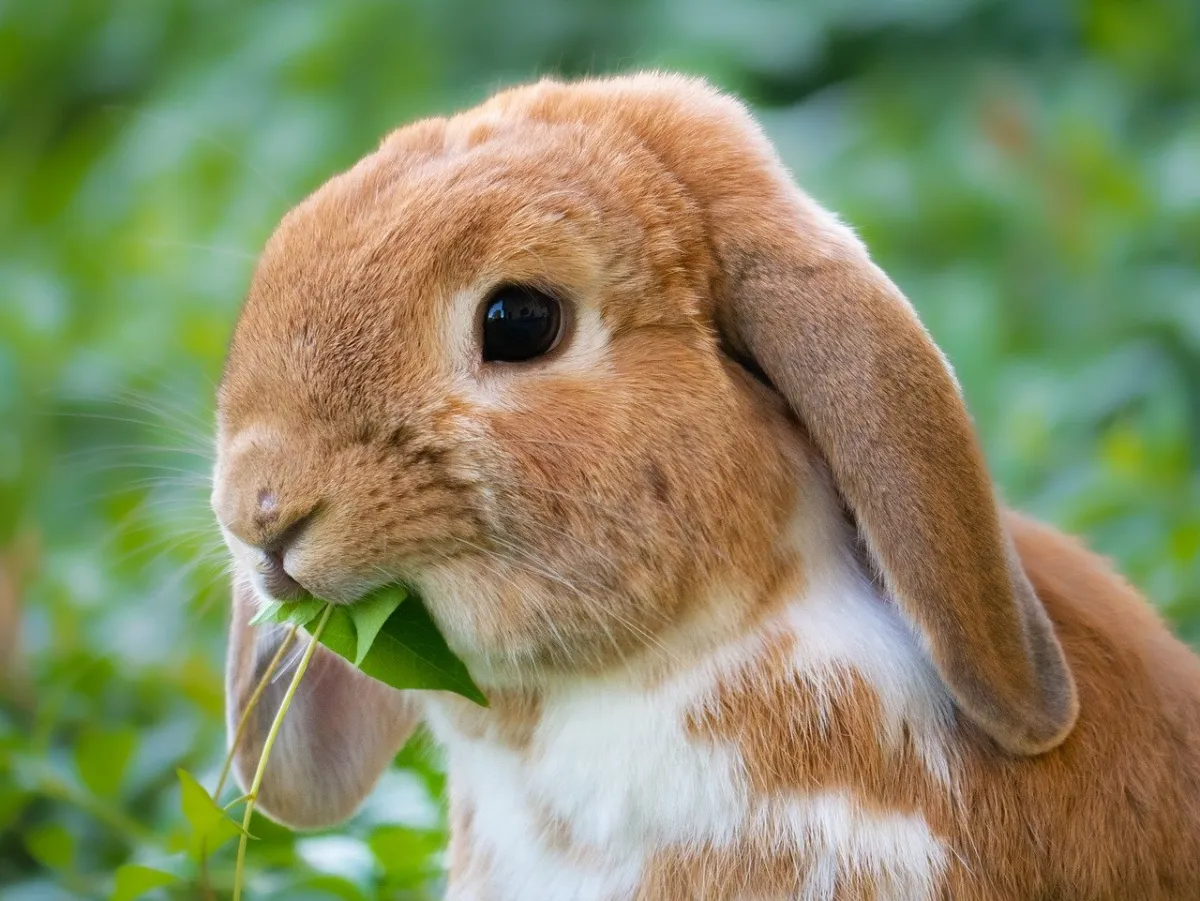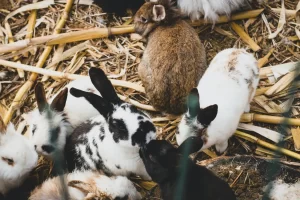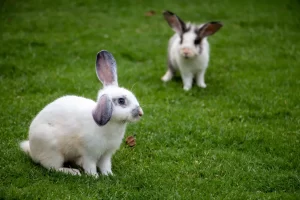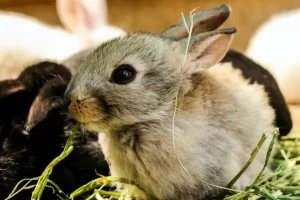Rabbits are curious creatures with a multitude of loves and desires.
In this article, we will unveil the 14 things that bring joy to their fluffy little hearts.
From their favorite fruits to the importance of hiding spots and the thrill of exploring, we will delve into the intricacies of their happiness.
By understanding what rabbits love, we can create a fulfilling environment that nurtures their well-being and fosters a strong bond between them and their human companions.
Get ready to discover the secrets of rabbit bliss!
In This Article
- 1 Key Takeaways
- 2 Rabbits’ Favorite Fruits
- 3 The Importance of Hiding Spots
- 4 Chewing for Dental Health
- 5 Understanding Rabbit’s Territorial Behavior
- 6 The Cleanliness of Rabbits
- 7 Rabbits’ Love for Exploration
- 8 Benefits of Petting and Massage
- 9 Rabbit’s Social Nature
- 10 The Importance of High-Quality Hay
- 11 Physical Activity for Rabbits
- 12 Understanding Rabbit’s Eating Habits
- 13 Rabbit’s Natural Behaviors: Digging, Chewing, Hiding, Burrowing, Foraging, Etc.
- 14 Creating a Safe and Stimulating Environment
- 15 Tips for Bonding With Your Rabbit
- 16 Conclusion
Key Takeaways
- Rabbits love fruits like bananas, apples, strawberries, and blueberries, but these should be given in moderation as treats.
- Providing hiding spots like wooden houses or boxes is important for rabbits’ comfort and feeling safe.
- Chewing is essential for rabbits to wear down their teeth, provide mental stimulation, and prevent dental issues.
- Rabbits mark their territory through scent marking and love everything that smells like them.
Rabbits’ Favorite Fruits
Rabbits love to munch on fruits such as bananas, apples, and strawberries. These rabbit-friendly treats aren’t only delicious but also provide important nutrients for their well-being.
When introducing new fruits to rabbits, it’s essential to do so gradually, as sudden changes in diet can upset their delicate digestive system. Start by offering small amounts of the new fruit and observe for any signs of digestive issues such as diarrhea or bloating.
It’s recommended to introduce one new fruit at a time and wait for a few days before adding another. This allows their digestive system to adjust and ensures their overall health and happiness.
The Importance of Hiding Spots
Providing rabbits with hiding spots allows them to feel safe and secure, promoting their overall well-being. Creating the perfect hiding spot for your rabbit is essential for their mental and emotional health.
Rabbits are prey animals and have a natural instinct to seek out small, enclosed spaces where they can hide from potential predators. Having a designated hiding spot in their living area gives them a sense of security and allows them to retreat when they feel stressed or anxious.
Additionally, hiding spots provide rabbits with a place to relax and have alone time, which is important for their overall mental health. Interactive toys, such as tunnels and cardboard boxes, can also serve as hiding spots and provide rabbits with mental stimulation and enrichment. These toys allow rabbits to engage in natural behaviors like exploring, chewing, and hiding, which can help prevent boredom and promote their well-being.
Chewing for Dental Health
Interestingly, while chewing is often seen as a destructive behavior, it’s actually essential for a rabbit’s dental health. Rabbits’ teeth grow continuously, and chewing helps wear them down and prevent dental issues.
To ensure rabbits have a healthy mouth, it’s important to provide them with safe chew toys specifically designed for rabbits. These toys help satisfy their natural urge to chew while promoting dental hygiene. By chewing on these toys, rabbits can keep their teeth in good condition and prevent overgrowth.
This not only prevents painful dental issues but also provides mental stimulation and prevents boredom. Investing in rabbit-safe chew toys is a simple yet crucial step in ensuring the overall well-being and dental health of our furry friends.
Understanding Rabbit’s Territorial Behavior
Chinning is a common behavior that rabbits use to mark their territory and feel at ease in their environment. When a rabbit chins, it rubs its chin against objects to deposit its scent. This scent marking is an essential part of a rabbit’s territorial behavior. Understanding rabbit’s body language is crucial in deciphering their territorial behavior.
Rabbits also mark their territory through droppings, urine, and licking. By spreading their scent, rabbits create a sense of familiarity and security in their surroundings. They love everything that smells like them, as it signifies their territory. Observing a rabbit’s body language, such as chin rubbing, can provide insight into their territorial behavior.
Creating a safe and comfortable environment for rabbits to engage in scent marking allows them to establish their territory and feel more at ease.
The Cleanliness of Rabbits
Rabbits groom themselves regularly to maintain cleanliness and hygiene. They’re naturally clean animals and spend a lot of time grooming their fur. A clean living environment is also important for their hygiene, especially when it comes to their litter box.
Here are some rabbit grooming techniques and the importance of litter box hygiene:
- Brushing: Regular brushing helps remove loose fur and prevents matting, keeping the rabbit’s coat clean and healthy.
- Nail Trimming: Trimming the rabbit’s nails is essential to prevent them from becoming overgrown and causing discomfort or injury.
- Ear Cleaning: Checking and cleaning the rabbit’s ears regularly helps prevent ear infections and keeps them clean and free from wax buildup.
- Litter Box Hygiene: A clean litter box is crucial for a rabbit’s hygiene. Regularly removing waste and replacing soiled litter helps prevent odors and encourages the rabbit to use the box consistently.
Rabbits’ Love for Exploration
As rabbits are naturally curious creatures, they thoroughly enjoy exploring new places. Creating a safe and stimulating environment for rabbits to explore is essential for their well-being. Providing a large enough space for rabbits to run around satisfies their explorative nature.
Cat tunnels and cardboard boxes can be used as hiding places and areas to chew and explore. Safe outdoor enclosures allow rabbits to run and explore grass or plants. Regular opportunities for exploration prevent boredom and promote mental stimulation.
It’s important to ensure that the environment is rabbit-proofed to prevent any accidents or injury. By incorporating hiding spots, toys, and different textures for them to investigate, rabbits will be able to satisfy their love for exploring while feeling safe and secure in their surroundings.
Benefits of Petting and Massage
They love it when you pet and massage them, as it helps decrease their heart rate and increase their serotonin levels, promoting relaxation. Petting and massage provide several benefits for rabbits, including building trust and creating a bond between you and your furry friend.
Here are some tips for relaxation and building trust through petting and massage:
- Find the right spots: Rabbits enjoy being petted on their forehead, behind their ears, and down their back. Avoid touching their bottom, feet, stomach, or tail, as these areas can make them uncomfortable.
- Take it slow: Building trust with rabbits takes time, as they’re prey animals and can be easily frightened. Patience is key, so allow your rabbit to approach and feel comfortable with you before attempting to pet or massage them.
- Observe their body language: Pay attention to your rabbit’s body language as you pet or massage them. If they tense up, twitch their ears, or try to move away, it’s a sign that they may not be enjoying it. Respect their boundaries and stop if they show signs of discomfort.
- Use gentle and soothing motions: When petting or massaging your rabbit, use gentle and soothing motions. Avoid applying too much pressure or making sudden movements, as this can startle them. Slow and rhythmic strokes will help them relax and enjoy the experience.
Rabbit’s Social Nature
A significant aspect of a rabbit’s social nature is their preference for companionship with others. Rabbits are highly social animals and enjoy spending time with others, whether it’s another rabbit or a human companion. For rabbits that are single, human companionship is important for their social needs. However, the best companion for a rabbit is another rabbit of the opposite gender and similar age.
Introducing a second rabbit into the family can provide them with a constant companion, promoting their well-being and preventing loneliness. When introducing a new rabbit, it’s important to do so gradually and in a safe environment. Rabbits thrive when they’ve the opportunity to interact and socialize with others, and it’s essential for their overall happiness and fulfillment.
In addition to companionship, creating a rabbit-friendly garden with plenty of hiding spots, tunnels, and toys can also enhance their social experiences.
The Importance of High-Quality Hay
High-quality hay is an essential component of a rabbit’s diet. It not only provides the necessary fiber for their digestive system but also offers numerous benefits for their overall health and well-being.
Here are some reasons why high-quality hay is so important for rabbits:
- Promotes Digestive Health: Hay helps keep a rabbit’s digestive system functioning properly. It aids in preventing gastrointestinal stasis, a condition that can be life-threatening for rabbits.
- Maintains Dental Health: Chewing hay helps wear down a rabbit’s continuously growing teeth. This not only prevents dental issues but also provides mental stimulation and prevents boredom.
- Provides Mental Stimulation: Hay can be used in various ways to provide mental stimulation for rabbits. It can be hidden in toys or puzzle feeders, encouraging them to forage and search for their food, which mimics their natural behavior in the wild.
- Prevents Obesity: Hay is low in calories and high in fiber, making it an excellent choice for rabbits. It helps them feel fuller for longer, preventing overeating and obesity.
Physical Activity for Rabbits
Rabbits thrive on regular and varied physical activities to keep them healthy and happy. A proper rabbit exercise routine is essential to prevent obesity, muscle weakness, and behavioral problems.
To provide adequate exercise for your furry friend, it’s important to create a safe and stimulating environment. Rabbit proofing your home is crucial to ensure their safety during playtime. Remove any potential hazards such as electrical cords or toxic plants, and secure any loose wires or objects that rabbits may chew on.
Set up a designated play area with tunnels, toys, and obstacles for them to explore and interact with. Encourage running, hopping, and digging by providing ample space and hiding spots.
Regularly engaging in physical activities with your rabbit not only promotes their overall health but also strengthens the bond between you and your furry companion.
Understanding Rabbit’s Eating Habits
Surprisingly, rabbits are herbivores and have a unique way of eating their own droppings to maximize their nutrient intake. This behavior is known as cecotropes consumption.
Cecal pellets are partially digested foods that rabbits re-ingest for nutrition. It’s important to respect rabbits’ natural behavior of eating their own droppings as it plays a crucial role in their digestion and nutrient absorption. Preventing them from doing so can disrupt their digestive system and lead to nutrient deficiencies.
To ensure rabbits have a healthy diet and digestive system, it’s important to provide them with a balanced diet of hay, fresh vegetables, and a limited amount of pellets. Additionally, providing them with plenty of fresh water and regular veterinary check-ups will help maintain their overall well-being.
Rabbit’s Natural Behaviors: Digging, Chewing, Hiding, Burrowing, Foraging, Etc.
While rabbits have a variety of natural behaviors, such as digging, chewing, hiding, burrowing, foraging, running and jumping, social interaction, gnawing, exploring, grooming, climbing, and binkying, it’s important to provide them with opportunities to engage in these activities for their physical and mental well-being. Creating a safe and stimulating environment is essential to meet their needs.
For digging, a designated digging box filled with safe materials like soil or shredded paper can satisfy their instinct. Providing appropriate chew toys helps rabbits fulfill their natural need to chew and prevents dental issues. Hiding spots, like wooden houses or cardboard boxes, give rabbits a sense of security. Burrowing can be encouraged by offering materials like hay or straw. Foraging activities, such as hiding treats or scattering hay around, mimic their natural behavior.
Running and jumping can be facilitated by providing a spacious and rabbit-proofed area. Social interaction is crucial, whether it’s with another rabbit or human companionship. Gnawing can be satisfied with safe chew toys. Exploring their surroundings stimulates their curiosity, and climbing structures provide them with vertical space. Grooming sessions and regular brushing help maintain their cleanliness. Lastly, binkying, a joyful behavior of leaping and twisting in the air, can be encouraged through exercise and play.
Bonding with your rabbit involves patience, allowing them to approach you, and building trust over time.
Creating a Safe and Stimulating Environment
One of the most important aspects of caring for rabbits is creating a safe and stimulating environment that meets their physical and mental needs. To achieve this, it’s essential to encourage their natural behaviors and promote mental stimulation through toys.
Encouraging natural behaviors: Rabbits have a variety of natural behaviors, such as digging, chewing, hiding, and exploring. Providing them with appropriate outlets for these behaviors, like digging boxes and safe chew toys, allows them to express their instincts in a safe and controlled manner.
Promoting mental stimulation through toys: Rabbits are intelligent animals that need mental stimulation to prevent boredom and keep them engaged. Toys such as puzzle feeders, tunnels, and interactive toys can provide mental challenges and enrichment for rabbits.
Tips for Bonding With Your Rabbit
Bonding with your rabbit is best achieved through regular interaction and gentle handling. Building trust is key to forming a strong bond with your furry friend. It’s important to establish routines that create a sense of security and predictability for your rabbit.
Spend quality time with your rabbit every day, engaging in activities that they enjoy, such as petting, grooming, or playing. Be patient and allow your rabbit to approach you at their own pace, as they’re prey animals and can be easily frightened. By respecting their boundaries and giving them space when needed, you’ll build trust and create a strong foundation for your relationship.
Consistency is key, so try to maintain a regular schedule of interaction and handling. Incorporating these tips into your daily routine will help foster a deep and meaningful connection with your rabbit.
Conclusion
In conclusion, understanding what rabbits love is crucial for their happiness and well-being. By providing them with their favorite fruits, hiding spots, and opportunities for chewing, we can create a stimulating environment that satisfies their natural instincts.
Additionally, recognizing and respecting their territorial behavior, cleanliness, and social nature allows us to develop a strong bond with our furry friends.
So let’s embrace their love for exploring, petting, and high-quality hay, and ensure they have plenty of physical activity to keep them happy and healthy.





